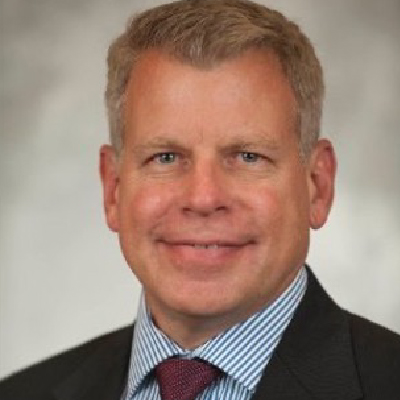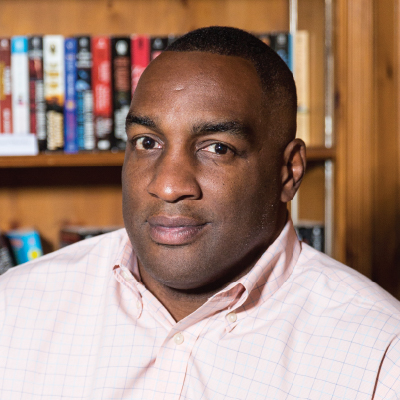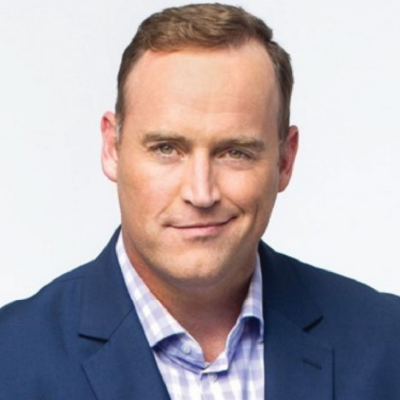Playing the Man Card: Men Coping With Arthritis
Having arthritis is tough. But men are supposed to be, too, right? Here’s what a few men with arthritis have to say about staying tough while living with arthritis.
By Timothy Gower | Updated June 1, 2022
Being a guy in today’s world means facing constant challenges, like finding the right golf app for your smartphone or combing over a bald spot without looking ridiculous. However, being a guy with arthritis comes with its own challenges. Having sore, stiff joints can get in the way of fulfilling many roles we often associate with men, whether it’s providing for the family, cutting the grass, or hanging out with the guys. Dealing with arthritis can often leave a guy feeling like he’s been stripped of his man card.
Men react to pain and other symptoms differently than women do, partly as a result of physiological differences. “Hormones play a big role in pain perception,” says Julia Kim, PhD, clinical psychologist at the Hospital for Special Surgery in New York City, explaining that estrogen lowers pain tolerance. Yet social expectations about masculinity can work against men coping with arthritis symptoms.
“Men learn to live by certain rules, which include not expressing our feelings, holding back important information and not wanting to appear vulnerable,” says Robert Garfield, MD, a psychotherapist and professor of psychiatry at the University of Pittsburgh, and author of Breaking the Male Code: Unlocking the Power of Friendship (Gotham Books, 2015).
Rheumatologist Neil Kramer, MD, sees the price of male stoicism in his practice at Overlook Medical Center in Summit, New Jersey. “Men tend to ignore their symptoms and will tolerate a lot more swelling and overt signs of arthritis, much more than the women I treat,” he says. “Those same men run the risk of having progressive joint damage and becoming more disabled.”
Yet doctors also sound notes of optimism about their male arthritis patients. “They tend to be very positive in their outlook and carry on with their lives,” says Dr. Kramer.
It’s important to maintain perspective, adds Kim. “You might have to change how you do certain things, but you are the man you used to be.”
Here are the stories of five men who say arthritis challenged their very sense of “guy-ness,” but who made some adjustments and are winning the game.
The Man About the House
 For Jeff Krakoff, the reality of being a man with rheumatoid arthritis (RA) sunk in one day years ago, all because he wanted a pickle. Try as he might, his swollen, aching fingers lacked the strength to pop the jar lid. Finally, he turned to his wife, Lori, with a question he never dreamed he’d have to ask: “Honey, could you open this for me?”
For Jeff Krakoff, the reality of being a man with rheumatoid arthritis (RA) sunk in one day years ago, all because he wanted a pickle. Try as he might, his swollen, aching fingers lacked the strength to pop the jar lid. Finally, he turned to his wife, Lori, with a question he never dreamed he’d have to ask: “Honey, could you open this for me?”
Greater blows to Krakoff’s male pride could be found in his driveway and yard. The year his son, Andy, was born, the Krakoffs’ hometown, Pittsburgh, was hit with a blizzard. Jeff looked on, feeling defeated, as Lori cleared the driveway, because he could barely make it out of bed. When Andy was old enough, he took on the chore. “It doesn’t feel great when your 9-year-old son is shoveling snow for you because you can’t,” says Jeff, 57, who runs a public relations firm. “But there were days when I just couldn’t.”
Jeff, an athlete since his youth, initially found it difficult to accept the limitations brought on by RA, which he’s had since his 20s. “I struggled for a long time. I felt like I lost who I was, to an extent.” He quit playing sports and working out, fell into a funk and gained weight. But he eventually accepted his condition, and with biologic medications, his RA is largely under control. Today, Krakoff plays and referees soccer, and has become an avid cyclist and helps stage an annual fundraiser ride for the Arthritis Foundation. However, he still doesn’t shovel his driveway — he uses a snow blower.
The Breadwinner
 It was a typical day at the office for Andrew Lumpe, in the middle of a typical work week, which sometimes stretched 60 hours — enough to tax anyone, much less a guy coping with aches and fatigue from RA. Lumpe was an associate dean in the school of education at Seattle Pacific University — a job he loved — but on that day in 2013, he felt the stress rapidly wearing him down. He felt drained every night as he headed home.
It was a typical day at the office for Andrew Lumpe, in the middle of a typical work week, which sometimes stretched 60 hours — enough to tax anyone, much less a guy coping with aches and fatigue from RA. Lumpe was an associate dean in the school of education at Seattle Pacific University — a job he loved — but on that day in 2013, he felt the stress rapidly wearing him down. He felt drained every night as he headed home.
“I was talking with the dean, and I suddenly came to the realization that I can’t keep up with this schedule,” says Lumpe, 60. “So I told him I just had to step away.” The decision was as difficult as it was necessary. “I’ve always had that stress of being the sole breadwinner,” says Andrew, whose wife, Torrey, had agreed to leave her teaching job to raise their four children. Andrew could return as a professor at the college, which would mean a less-demanding schedule. But he had seen himself perhaps becoming a dean someday or even a college vice president. He was turning his back on more money, to say nothing of prestige.
Placing health before career can be tough for a lot of men, says Kim. “If you see yourself as the breadwinner, and your definition of that role is very specific and inflexible, you could have trouble coping,” she says. With Torrey’s full support, Andrew is at peace with his choice. “It was tough at first, but I’m fine with the decision now,” says Lumpe.
The Dad
 It’s Christmas Day. The gifts are wrapped and a feast awaits, as does an uncomfortable moment David Hlavac lives through every year. In walks his brother-in-law from Connecticut, who still plays competitive soccer, and like that he starts rough-and-tumbling with David’s 10-year-old son, Wally, much to Wally’s delight. All David can think is: I wish I could do that. Unfortunately, pain in his ribs and spine from ankylosing spondylitis (AS) keep him from that kind of physical fun with his son.
It’s Christmas Day. The gifts are wrapped and a feast awaits, as does an uncomfortable moment David Hlavac lives through every year. In walks his brother-in-law from Connecticut, who still plays competitive soccer, and like that he starts rough-and-tumbling with David’s 10-year-old son, Wally, much to Wally’s delight. All David can think is: I wish I could do that. Unfortunately, pain in his ribs and spine from ankylosing spondylitis (AS) keep him from that kind of physical fun with his son.
“While I don’t mind the rough-housing, it does reinforce that my AS is a limitation to fatherhood,” says Hlavac, 49, of Minneapolis. “That’s frustrating and demoralizing.”
Hlavac first developed AS symptoms in his late teens. Biologic infusions have slowed its progression, and losing 90 pounds has helped him be more active, though he still has pain. But even if his condition prevents him from rough-housing with Wally, David is a determined dad. “I try and make up for it in other ways,” he says. “We go for walks. We shoot baskets. I ride bikes with my daughter, Angelina. Because that’s something we can do.”
Once, David and Wally were shooting hoops at a local park when a pair of youngsters challenged them to a game of two-on-two. “They proceeded to completely embarrass us,” David says with a chuckle. “But my son appreciated that we tried. He saw that Dad’s not that good at basketball, but I still got out there and sweat up a storm. I wanted him to know that, despite the fact that I’m not very good and in a lot of pain, I’ll still try and do these things.”
The Athlete
 Darrell Thompson got the news while lying on a training table in the Carolina Panthers locker room. “You have arthritis in your hips,” the doctor said. “If you continue to play football, you’re going to need a new hip within the next three to five years.” With those words, the childhood dream Thompson made a reality came to a quiet end. He chose to forgo the surgery and hung up his helmet.
Darrell Thompson got the news while lying on a training table in the Carolina Panthers locker room. “You have arthritis in your hips,” the doctor said. “If you continue to play football, you’re going to need a new hip within the next three to five years.” With those words, the childhood dream Thompson made a reality came to a quiet end. He chose to forgo the surgery and hung up his helmet.
Thompson thought that stopping football would forestall having a hip replacement, which it did. He was banged up, in pain, and it wasn’t going to get better. He had seen many friends in the league have similar experiences and it just seemed like the time was right.
Thompson was a star running back at the University of Minnesota and played in the National Football League for five years with the Green Bay Packers, who released him after the 1994 season. He had hoped to continue his career with the Panthers the next year, but X-rays revealed the hip pain he had long tolerated was more serious than he thought. The news left him stunned. “The finality of it — you’ve played football from age 9 to 29, and suddenly it’s over,” says Thompson.
But he also felt another, surprising emotion: relief. “I knew I couldn’t play forever,” says Thompson, so planning for the future was never far from his mind. “You’ve got to ask yourself: What’s your next passion in life?” he says.
Thompson’s answer was helping troubled youth. He had already volunteered at Bolder Options, a Minneapolis nonprofit organization that connects at-risk kids with mentors. Thompson, 54, is now president of the organization.
Thompson’s time on the gridiron left him not only with osteoarthritis in his hips (one was replaced nine years ago), but in his knees, wrists and elbows, too. He’s had to give up his favorite pastime, pickup basketball. “That was the hardest thing,” he says. “Football took that away from me.”
To stay active Thompson takes walks with his wife, Stephanie, cheers on their four kids — many competing in sports — and practices yoga. When joint pain acts up, he finds the greatest source of relief in the freezer. “One thing I learned from sports is the benefits of ice,” says Thompson. “It’s the absolute best remedy.”
One of the Guys
 Matt Iseman is a funny man, but the standup comic and cohost of American Ninja Warrior isn’t laughing as he recalls a pickup basketball game with some buddies during a 10-year reunion at his alma mater, Princeton University. At 6 foot, 3 inches, Iseman has always been athletic; he was a star pitcher on Princeton’s baseball team. Since heading to Hollywood to pursue a career in comedy and acting (after graduating with honors from medical school), he had been working out five or six days a week.
Matt Iseman is a funny man, but the standup comic and cohost of American Ninja Warrior isn’t laughing as he recalls a pickup basketball game with some buddies during a 10-year reunion at his alma mater, Princeton University. At 6 foot, 3 inches, Iseman has always been athletic; he was a star pitcher on Princeton’s baseball team. Since heading to Hollywood to pursue a career in comedy and acting (after graduating with honors from medical school), he had been working out five or six days a week.
However, in the months preceding the reunion, he had developed a variety of aches, which he assumed came from working out too hard. Then his energy level sank, he gained 50 pounds and found himself sleeping 12 hours a day. That day on the basketball court, “I remember wanting to lose so the game would end, I was so exhausted,” says Iseman. Trouble continued back home. “My feet hurt, I was stiff, out of shape and chubby. I didn’t feel like myself, so it was hard to be around the guys,” recalls Iseman. “I really felt like I was missing out.”
Several doctors failed to figure out what was causing his health woes, including one who advised him to wear clogs for better arch support. “Wearing clogs is a great way to stay single in Hollywood,” quips Iseman. “I clip-clopped around like a Clydesdale.” Finally, a rheumatologist diagnosed RA, and Iseman’s life turned around once he began taking medication. “It was like a heavy veil lifted,” he says. “My energy came back.”
Today, Iseman stays in shape with yoga, Pilates and swimming. Throughout it all, doing standup and hanging out with his comedian buddies — “laughing, telling jokes, writing jokes” — helped him stay sane, says Iseman, now 51. “No matter how bad you feel, laughing just makes you feel better.”
In the Bedroom
Several guys told us that arthritis can leave them with a little less swagger in bed.
“Sex is difficult. My flexibility is compromised,” said David Hlavac, who has severe arthritis throughout much of his upper body. “You try hard to be sexy, but it’s difficult when you can’t move your body the way you want to.”
Simply getting comfortable with a partner can be a challenge, some patients tell clinical psychologist Julia Kim, PhD, of the Hospital for Special Surgery. She responds by asking: But do you feel better after sex? Often, the answer is yes. “Then, I tell them, it was worth it. You shouldn’t be afraid.” Experimenting with new positions may help make sex more enjoyable, she adds.
Certain types of arthritis, including RA, are linked to erectile dysfunction, research shows. No one is sure why, but it may have to do with systemic inflammation, Kim says, while the depression and fatigue that can accompany RA may make sex a low priority. Popping that little blue pill might help, and coming to terms with your limitations could also help give your love life a boost, says Kim.
Timothy Gower is a freelance writer in Harwich, Massachusetts.

Stay in the Know. Live in the Yes.
Get involved with the arthritis community. Tell us a little about yourself and, based on your interests, you’ll receive emails packed with the latest information and resources to live your best life and connect with others.

